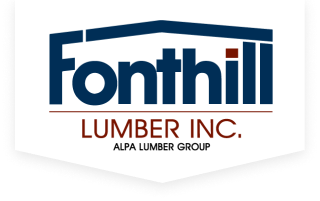Answering Your Top 5 Floor Truss Queries

Lately, engineered floor trusses have become all the rage in modern construction - especially when it comes to open-concept builds. Highly efficient, strong and versatile, floor trusses have the ability to accommodate HVAC and plumbing systems. Plus, they can fast-track projects. It’s no wonder they’re a part of residential and commercial construction now.
Despite their popularity, questions around them still abound. Whether you’re a builder, contractor or homeowner, we know you have a couple of queries on your mind regarding floor trusses that need to be answered. That’s why we at Fonthill Lumber Inc. gathered credible information from our top experts to clear your doubts about floor trusses. Let’s begin!
1. Define floor trusses and explain how they’re different from joists.
To answer this - floor trusses are engineered wood components used for the purpose of building floors during construction. They are typically made up of top and bottom chords, which are held together with the help of diagonal or vertical webbing.
The difference between them and joists - i-joist or otherwise - is that trusses have open webs. This allows builders to add mechanical systems to them, be it ductwork, plumbing, or wiring. Plus, floor trusses also come in custom designs, making them more flexible. Builders have the option to design systems with longer spans with fewer supports. This makes it easier to execute open-concept plans.
2. How far can floor trusses span?
If you want a number, up to 40 feet is the answer. Floor trusses don’t need intermediate support when they span up to 40 ft. However, if this number goes any higher, support becomes necessary. That said, span length depends on several other factors too, such as spacing, depth, load requirements and the type of material used. If you’re confused about the optimal depth and spacing your floor trusses should have to meet your project’s specs, experts at Fonthill Lumber can help you.
3. Are floor trusses available in custom or standardized sizes?
When it comes to floor trusses, there are no stock sizes. The entire system is purely custom-built to ensure it suits your projects and meets its unique demands. It’s the only way to ensure every single truss offers the perfect fit and aligns with your project’s bearing walls. Custom sizes also guarantee that the system is capable of accommodating cantilevers, stairwells, or other design features.
If you work closely with a reputed lumber yard like Fonthill Lumber Inc., we will deliver shop drawings as well as engineered truss layouts that are code-compliant and site-ready.
4. Can holes be drilled into floor trusses? Can they be cut?
A two-part question with a single answer, which is - No. If you try to modify a truss after it’s been fabricated, you are asking for trouble. Cutting its webbing or chords can seriously compromise the structural integrity of the entire system. Not to mention, it can make any engineered certifications null and void.
Moreover, there’s no actual need to alter them. Floor trusses already feature an open-web design, which creates a clear pathway for all kinds of mechanical systems. However, in the off chance an adjustment is necessary, speak to your lumber yard before making any DIY alterations.
5. Can homeowners place an order for floor trusses?
Certainly! Although it’s primarily the job of builders or contractors to plan and order floor trusses as per the project’s specifications, keen homeowners renovating their space or planning a custom build can also consult a trustworthy lumber yard to discuss their floor system needs. For example, you can lean on us at Fonthill Lumber Inc. to consult on your project’s floor truss requirements. Not only will we walk you through its benefits and guarantee you get a tailored solution, but we will also connect you with qualified builders and engineers.
Conclusion
Other questions people commonly ask revolve around the price of floor trusses. If you’re curious, let us tell you that the upfront cost of floor trusses can be higher than joists, but it pays off in the long run. Trusses, after all, are very durable and do not require a lot of manpower for installation. So whether you’re a first-time builder, a seasoned contractor or a curious homeowner, turn to Fonthill Lumber Inc. Not just to get your questions answered, but also to get excellent trusses. Contact us to know more about our designed-to-perform floor trusses.


